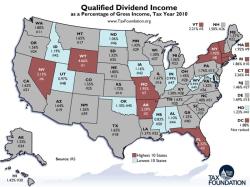Why are credit unions safer than banks?
Credit unions and banks operate differently, and the safety of one over the other depends on various factors, including regulations and the financial health of the institution. Here are some reasons why some people may consider credit unions to be safer than banks:
Ownership Structure: Credit unions are not-for-profit organizations owned and operated by their members, while banks are for-profit institutions owned by shareholders. Credit union members typically have a say in the governance and decision-making of the credit union, which can foster a sense of responsibility and stewardship.
Member Focus: Credit unions are often more community-focused and prioritize serving their members' financial needs. This emphasis on member satisfaction can lead to a more conservative approach to risk-taking.
Regulation: Both credit unions and banks are subject to strict financial regulations and oversight. Credit unions are regulated by the National Credit Union Administration (NCUA) in the United States, while banks are regulated by the Office of the Comptroller of the Currency (OCC) and the Federal Deposit Insurance Corporation (FDIC). These regulatory bodies enforce safety and soundness standards to protect depositors and maintain the stability of the financial system.
Insurance Coverage: Like banks, credit unions also offer deposit insurance. In the United States, credit union deposits are insured by the NCUA, which provides up to $250,000 in insurance coverage per account holder, similar to the FDIC insurance for bank deposits. This insurance protects depositors against losses in the event of the institution's failure.
Member-Focused Lending: Credit unions often have a reputation for more conservative lending practices and being more focused on responsible lending to their members, which may contribute to greater financial stability.
Smaller Size: Many credit unions are smaller in size compared to large, multinational banks. Smaller financial institutions may be less complex and interconnected, potentially reducing systemic risks.
However, it's essential to note that the safety and stability of any financial institution, whether a credit union or a bank, depend on factors such as their financial management, adherence to regulations, risk management practices, and economic conditions. While credit unions have their advantages, they may not always offer the same range of financial services or accessibility as larger banks.
When considering the safety of your deposits, it's crucial to research and choose a reputable institution, whether it's a credit union or a bank, and to stay informed about their financial health and regulatory compliance. Always make sure your deposits are covered by deposit insurance to protect your savings in case of institutional failure.
What factors contribute to the perception that credit unions are safer than banks?
There are a number of factors that contribute to the perception that credit unions are safer than banks. These include:
- Credit unions are not-for-profit organizations. This means that they are not beholden to shareholders and are focused on serving their members.
- Credit unions are subject to strict regulation. Credit unions are regulated by the National Credit Union Administration (NCUA), which is an independent agency of the federal government. The NCUA has strict rules and regulations that credit unions must follow.
- Credit unions have a history of safety and soundness. Credit unions have never failed in the United States and have a long history of providing safe and sound financial services to their members.
How do credit union regulations and practices enhance safety for depositors?
Credit union regulations and practices enhance safety for depositors in a number of ways. For example, credit unions are required to maintain a certain amount of capital on hand. This capital acts as a cushion against losses. Credit unions are also required to have their financial statements audited annually by an independent auditor.
In addition, credit unions are subject to a number of other regulations that are designed to protect depositors. For example, credit unions are limited in the types of investments they can make. This helps to reduce the risk of losses.
Are there historical examples that illustrate the safety of credit unions in times of economic crisis?
Yes, there are a number of historical examples that illustrate the safety of credit unions in times of economic crisis. For example, during the Great Recession of 2008-2009, credit unions outperformed banks in terms of safety and soundness. Credit unions had fewer failures and losses than banks.
How can individuals assess the financial health and stability of a credit union?
There are a number of ways that individuals can assess the financial health and stability of a credit union. One way is to look at the credit union's financial statements. The financial statements will show the credit union's assets, liabilities, and capital. Individuals can also look at the credit union's credit rating. A high credit rating indicates that the credit union is financially sound.
Individuals can also contact the NCUA for information about the financial health and stability of a credit union. The NCUA has a number of resources available to help individuals make informed decisions about where to deposit their money.
What are the differences in insurance coverage between credit unions and banks?
Deposits at credit unions are insured by the National Credit Union Share Insurance Fund (NCUSIF). The NCUSIF is a government agency that insures deposits up to $250,000 per depositor, per insured financial institution.
Deposits at banks are insured by the Federal Deposit Insurance Corporation (FDIC). The FDIC is also a government agency that insures deposits up to $250,000 per depositor, per insured financial institution.
However, there are some differences between the NCUSIF and the FDIC. For example, the NCUSIF insures deposits in corporate credit unions, while the FDIC does not.
Overall, credit unions and banks are both safe places to deposit your money. Both types of institutions are subject to strict regulation and have government-backed insurance. However, there are some differences between credit unions and banks that individuals should be aware of when making a decision about where to deposit their money.













